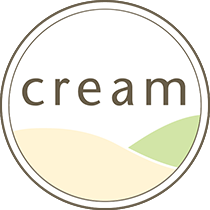Kinpou
VISIT THIS PRODUCER'S WEBSITE
LOCATE ON GOOGLE MAPS
VISIT IMPORTER'S WEBSITE
Country of Origin: Japan
Location: Tamuramachi Kanezawa, Koriyama
People: Yasuhiko Niida & Maki Niida, Owners | Yasuhiko Niida, President & Master Brewer (Toji)
Viticulture: Practicing Organic
Items
| Kinpou (180 ml) 'Odayaka' Junmai Ginjyo, Fukushima Prefecture | Login | — | In Stock |
| Kinpou (720 ml) 'Odayaka' Junmai Ginjyo, Fukushima Prefecture | Login | — | In Stock |
| Kinpou (720 ml) Kimoto Junmai, Fukushima Prefecture | Login | — | Special Order Item |
Established in 1711, Niida-Honke is situated in central-west Fukushima Prefecture. It is here where 18 generations of brewers have dedicated their lives to brewing sake.
Niida-Honke's sake is produced from entirely organic ingredients. The brewery is a pioneer in the production and use of Shizenmai (all natural or organic) sake brewing rice. The rice is cultivated without the use of pesticides or chemical fertilizers. Pest control in the rice paddies is accomplished by introducing frogs into the rice paddy ecosystem. Rice field weeding is done by hand and via tadpole shrimp introduced into the fields. Lactic acid is not added during the brewing process. The yeast starter is naturally made. Sediment removers are not used.
The brewery hopes to achieve nearly full sustainability by year 2025. The brewery's water is sourced from two sources on the company's land: soft spring water, Mizunuki no Wakimizu, sourced from atop one of the mountains situated within the 600+ acres of land the brewery possesses and hard well water, Takenouchi no Idomizu, from a well situated near the brewery's rice fields. All waste water is treated in the brewery's waste water treatment facility. In order to protect the water supply, the brewery also works closely with the Japan Bear & Forest Society in an effort to revitalize the local environment and maintain the health of the ecosystem. 95% of all bottles utilized by the brewery are recycled.
All materials utilized in the production of Niida-Honke's sake undergo a multi-stage testing process for radioactivity pursuant to the standards set by the Ministry of Health, Labor and Welfare and have been found to be radiation-free and safe to consume.
Media Links
Nippon.com: Fukushima’s Niida Honke: 300 Years of Brewing Sake in Harmony with Nature
Fukushima-Sake.com: Women Brewing Sake: Fukushima’s Female Brewers’ Perspective
Umami Mart: Kinpou Sake from Fukushima

